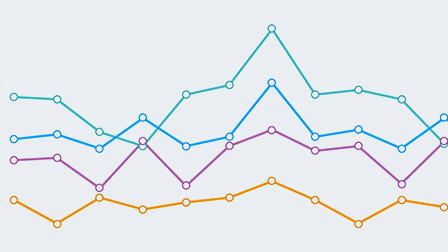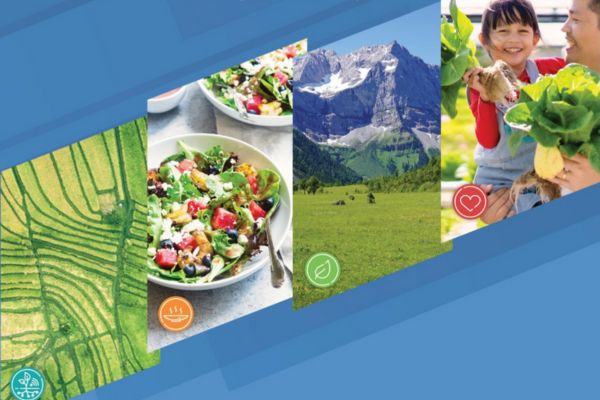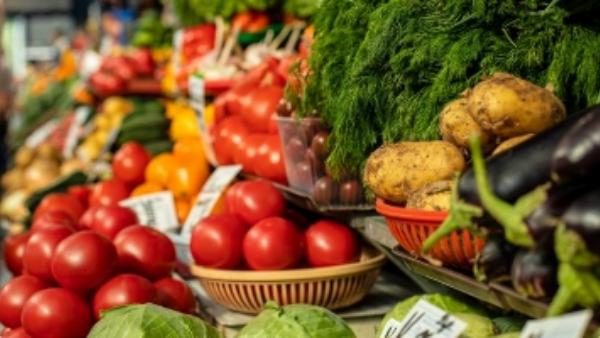Highlights
Director-General

Gaza’s agricultural infrastructure continues to deteriorate at alarming rate
Available cropland now at less than five percent, according to latest geospatial assessment from FAO and UNOSAT

Story
Digitalizing Panama’s mountain villages
How Indigenous youth have ushered in the digital age to their region

In Iraq, FAO Director-General co-launches $39-million climate resilience project
The SRVALI project aims to directly benefit rural households

Interactive story
Heroes of deserts and highlands
Meet the camelids in 3D and see how they help sustain livelihoods, cultures and more.
Photo gallery - Mauritania 2025

Campaign
365 days of action
Join FAO’s 80th anniversary by organizing events that highlight actions and innovations for a sustainable food future.

In Focus
FAO response to global food security challenges
Data analyses, policy recommendations, and actions on the ground.

In Focus
Unearth Sustainable Pompeii
Join us on a path to rediscover the innovative and sustainable practices of the past with this special educational experience.

Publication
Potatoes: So Familiar, So Much More to Learn
Explore a selection of publications on this staple food and find out more on its key role in strengthening food security and alleviating poverty worldwide.

Statistics
FAOSTAT - Food and agriculture data
FAOSTAT provides free access to food and agriculture data for over 245 countries and territories and covers all FAO regional groupings from 1961 to the most recent year available.
Director-General

In Iraq, FAO Director-General co-launches $39-million climate resilience project
The SRVALI project aims to directly benefit rural households
Join the conversation
Voices of Impact
Rice-fish farming in the Land of Milk and Honey: Anastasia's story
27/05/2025
Anastasia Mwamula, a farmer in Butaleja, Uganda, successfully used the ancient Chinese tradition of breeding fish in flooded paddy fields and other techniques taught under the the FAO-China-Uganda South-South Cooperation (SSC) project to quadruple her rice harvest and double the fish production.
Video
Did you know bees are not the only pollinators?
18/05/2025
From increased food production to increased biodiversity, bees and other pollinators give us so much.
Podcast
FAO Brief – 26 May 2025
26/05/2025
In this episode, FAO calls for immediate humanitarian access to Gaza amid the imminent risk of famine; the number of people experiencing acute food insecurity worldwide increases for the sixth consecutive year; and six agricultural systems in Brazil, China, Mexico and Spain are recognized for their sustainable practices.
Data
FAO Food Price Index 2022-2025
2020 World
31.2%
2010 World
31.5%
In depth

Data
Transparency is key to FAO’s mission
Our new transparency portal shows how and where our resources are used and the results we have achieved. Explore the portal now.

Publication
Medium Term Plan and Programme of Work
The Director-General’s Medium Term Plan 2026-29 and Programme of Work and Budget 2026-27.

In Focus
FAO Data Lab
The FAO Data Lab for Statistical Innovation modernizes the statistical business process, with a specific focus on emergency contexts, when having access to timely information is very important.
FAO and the SDGs
Hover the mouse over an SDG icon for more information
A world free from hunger and malnutrition where food and agriculture contributes to improving the living standards of all

FAO works with governments and partners to empower some of the world’s most marginalized people to end rural poverty.

FAO helps ensure food security by developing ways of growing food that will work in the future so that millions of people don’t go hungry.

Good health starts with nutrition. FAO sets global standards and works with governments and the private sector to ensure food quality and safety throughout the food chain.

FAO invests in educational systems for rural communities and supports improved access to primary education and school meals in order to create equal opportunities for all and chances of lifelong learning.

FAO supports gender equality in the agricultural sector in an effort to raise levels of nutrition in local communities and improve agricultural productivity.

FAO works with governments to ensure water use in agriculture is made more efficient, equitable and environmentally friendly.

FAO promotes the use of renewable energies and works to ensure access to modern energy services across the food chain.

FAO seeks better economic opportunities for all by investing in sustainable agricultural practices and food systems that reduce inequalities and create decent jobs.

FAO seeks to secure a future for rural communities via investments in transportation, irrigation, food storage facilities and communication technologies.

FAO works with countries and partners to generate employment in rural areas, ensure access to natural resources for the most vulnerable and connect farmers to markets.

FAO works to improve urban healthcare, water quality and rethink city region food systems to help deter the negative effects of sprawling urbanisation.

FAO coordinates major global initiatives and projects to tackle food waste and loss, partnering with international organisations, the private sector and civil society.

FAO supports countries in responding to the threats of climate change by providing advice, data and tools for better agricultural policies and practices.

FAO, in partnership with governments and fishing communities, implements best practices in fisheries to ensure our oceans are protected as a means of livelihoods.

FAO promotes sustainable approaches to natural resource management and supports endeavours that promote a balance between conservation and development initiatives.

FAO plays a critical role in peacebuilding, restoring rural livelihoods, building resilience and participatory approaches to policymaking.

FAO acts as a neutral policymaking forum and develops partnerships with all concerned with food and agriculture to ensure a world free from hunger.


















Globally Important Agricultural Heritage Systems.
PODCAST
Fields of knowledge
Changing agriculture in Uganda through South-South Cooperation



